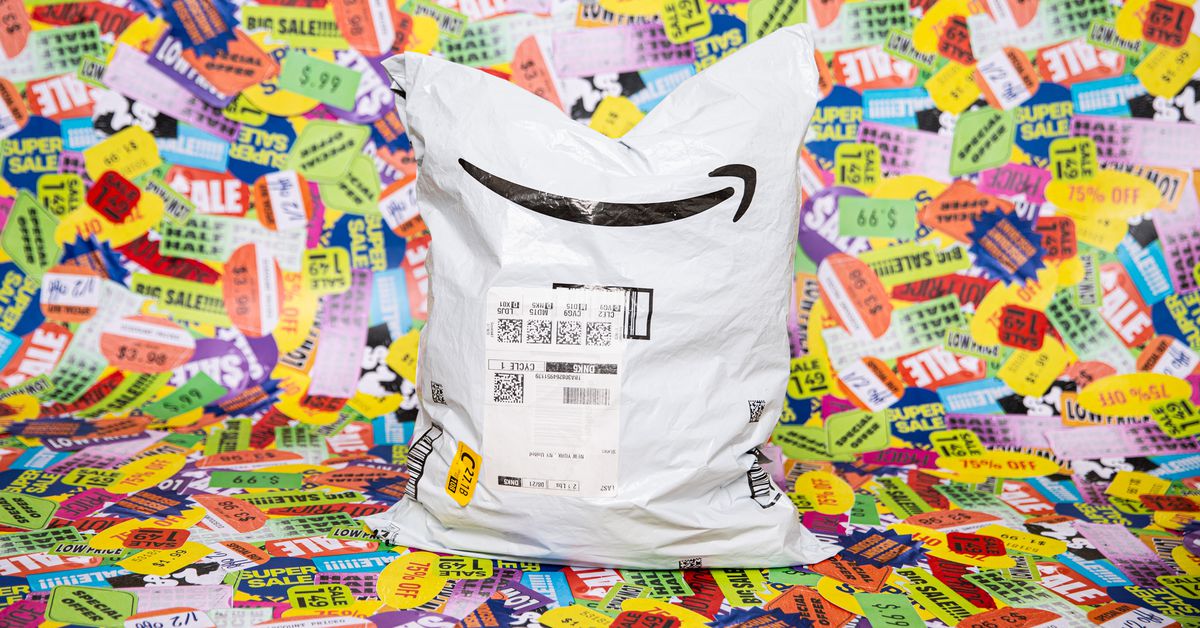The Dupes: How Online Retailers Are Selling Cheap Copies of High-End Products
As I browsed through Amazon’s new $20-and-under bargain bin section, I stumbled upon an image that caught my eye. It was a listing for "Timeless Black Dress for Both Casual and Formal Gatherings," and the photo was unmistakable. But it wasn’t just any ordinary product image – it was stolen.
The image actually belongs to Mirror Palais, a New York-based independent brand that sold the "Daisy Dress" for $545 a few years ago. The dress has gained popularity through social media algorithms and its celebrity fans, with images spreading from the brand’s website to tweets, Pinterest mood boards, and eventually, to the discount section of Amazon, where it’s listed for $7.49.
When I added it to my cart, I realized it was even cheaper – the price dropped to an astonishingly low figure. But something didn’t add up. The image on the listing seemed too good to be true, and I couldn’t shake off the feeling that this was a cheap copy of a high-end product.
The Rise of Ultrafast Fashion
In recent years, online shopping has become increasingly popular, with ultrafast fashion brands like Shein and AliExpress leading the charge. These companies have revolutionized the way we shop by offering ridiculously low prices on trendy items, often with free shipping and no returns required.
But at what cost? The mantra of "if it seems too good to be true, it probably is" has become a relic of the past. Impossibly cheap deals are now the norm, and consumers have grown accustomed to taking risks on products that seem too good to be true.
The Potemkin Village of Superstores
As I dug deeper into the world of ultrafast fashion, I discovered a disturbing reality. Behind the facade of trendy websites and social media influencers lies a complex network of suppliers and manufacturers who produce cheap copies of high-end products.
These suppliers use lifted images from brands like Mirror Palais to create convincing listings on platforms like Amazon and AliExpress. The products themselves are often made in sweatshops or factories with questionable labor practices, and the quality is consistently subpar.
The Dark Side of Cheap Binge Shopping
As I received my package from Amazon Haul, I was struck by the pathetic state of the items inside. The sweater looked like a lump of frozen fish, the dress was thin and flimsy, and the handbag had a mysterious closure that made it look like someone asked AI to design a trendy bag.
The industry itself may not be sustainable in the long run either. The de minimis rule allows packages valued under $800 to enter the US import tax-free, but the White House has proposed overhauls of this loophole that would cut down on small packages claiming duty-free exemption.
President-elect Donald Trump has threatened to impose tariffs of 60 percent or more on products coming from China, which would likely cause prices to skyrocket for consumers. The ultracheap product offerings of Temu, Shein, AliExpress, and Amazon Haul might start to look like not such a great deal after all.
The Fantasy Fades
As the fantasy of cheap binge shopping fades, reality sets in when products arrive at our doorstep. Sometimes it’s because they suck, and eventually make their way to landfills. Other times, it’s because companies admit child labor is involved in their creation.
But there’s a more sinister threat on the horizon – the systems that allow for cheap binge shopping come undone. As governments propose overhauls of loopholes and tariffs are imposed, the industry itself may not be sustainable.
The Sad Front and Back
As I looked at my Amazon Haul package, I couldn’t help but feel a sense of disappointment. The items themselves are not made to last – and perhaps the industry itself isn’t, either.
In this world of cheap copies and ultrafast fashion, it’s essential to remember that the mantra "if it seems too good to be true, it probably is" still holds some truth. As we shop online, let’s not forget to suspend our disbelief and question the products we’re buying.



